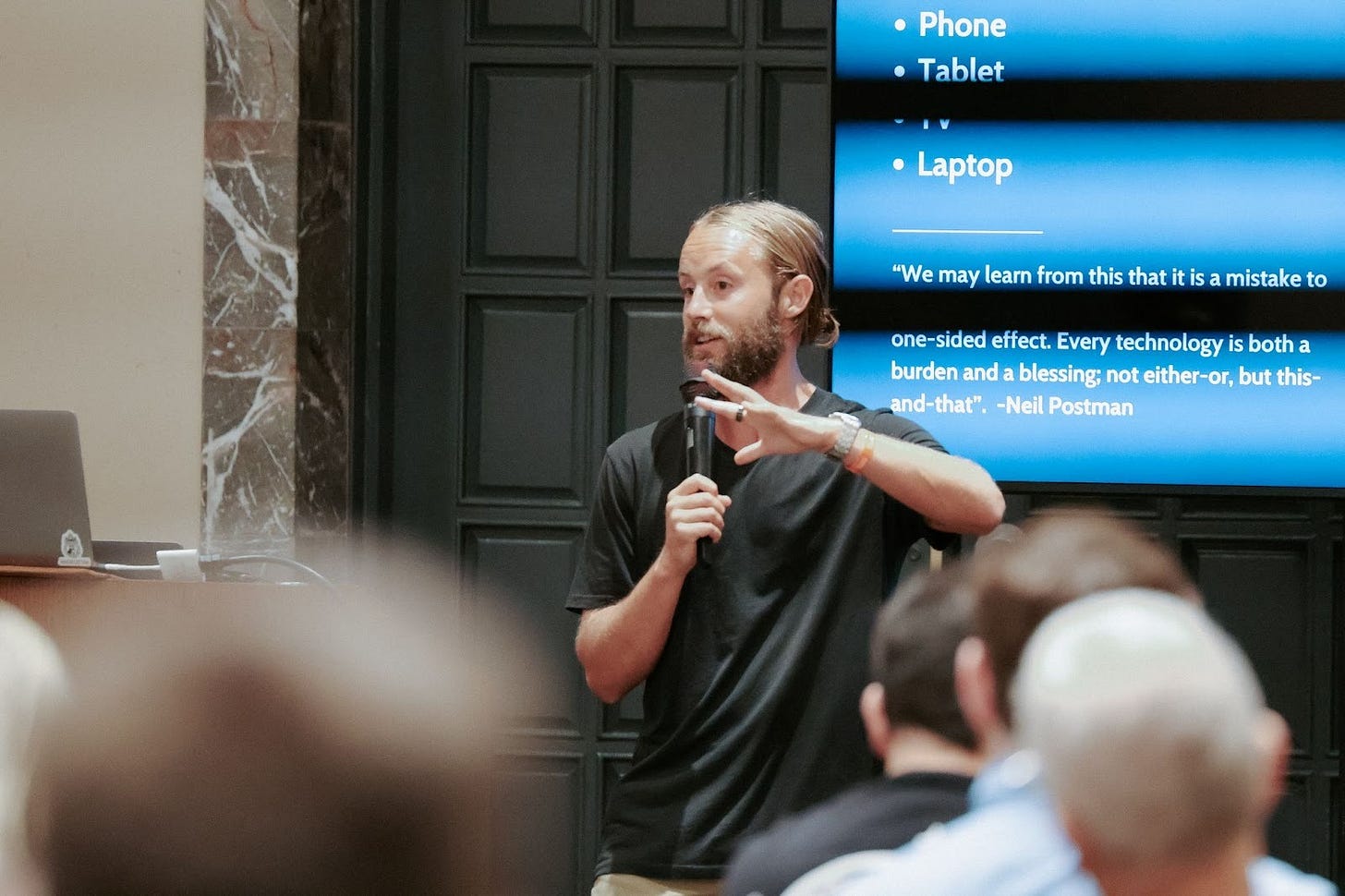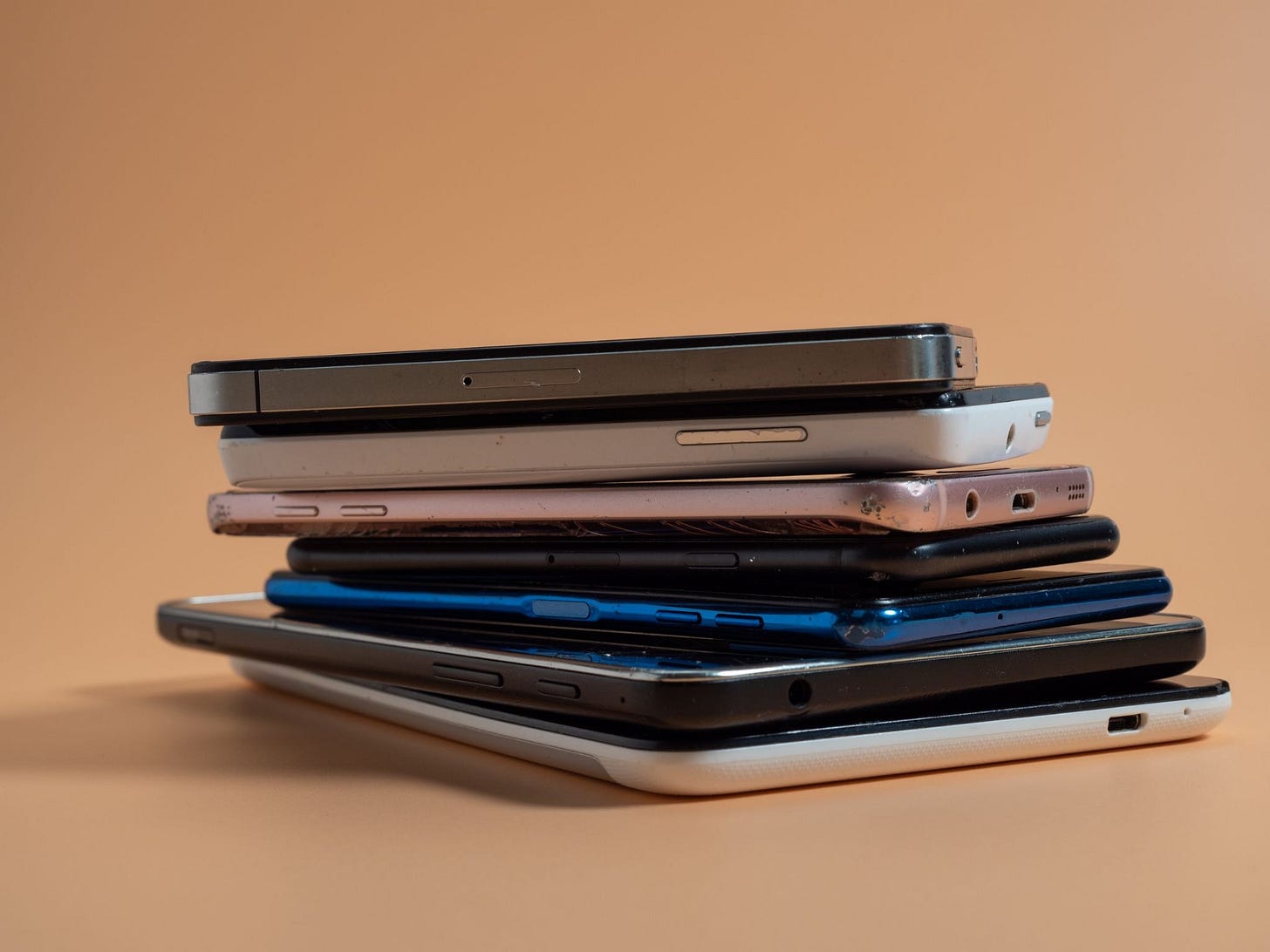Evangelization through tech detox? Replacing digital connectivity with human connection
Description
Isaiah Ballard watched with glee as his iPhone splashed into the Missouri River and began to sink.
In December 2023, the then-freshman at Benedictine College in Atchison, Kan. had become so fed up with his screen addiction that he decided to chuck his iPhone into the river, at the invitation of a professor.
It was, perhaps, the most freeing thing Ballard had ever done.
“I got pretty addicted to mobile games and social media; especially during COVID when my phone was my primary way of communicating with people and entertainment,” Ballard told The Pillar.
“I was analyzing all the terrible things I did in my life on my phone, and I did not want any of that stuff, so now that phone is at the bottom of the Missouri River,” he said.
“It was so freeing and my life is so much better now because of it.”
Today, nearly two years after he ditched the smartphone, Ballard has a “dumb phone.” He can’t do much on it – and he says he’s much happier that way.
Tossing an iPhone into a river may be an unusual move. But Ballard is not alone in his desire to cut ties with a cellular device and the mindless scrolling that can come with it.
There are plenty of apps, devices, and even built-in phone features aimed at beating the screen addictions that are so pervasive in modern society. Many of them include timers that monitor phone use, and then issue warnings when a certain screen time limit is exceeded. Others disable the use of certain apps or features at specific times of day or after a use limit has been met.
But for Ballard, the help to maintain a low-tech lifestyle came through a program that takes a different approach, replacing digital connectedness with authentic human connection.
The program - called Humanality - emphasizes small groups that meet regularly, in-person, in order to foster accountability, education, and the creation of authentic relationships.
Humanality’s founder says this approach reflects a Catholic anthropology, and that while the program itself is not explicitly religious, it can pave the way for people to encounter the Gospel.
Challenging the Device
Andrew Laubacher, a former seminarian and worship leader, launched Humanality in 2023 to address the growing crisis of tech addiction.
“Humanality is essentially helping people use technology with intentionality and detox from digital addiction; that could be from screens, social media, gaming, pornography, whatever,” Laubacher told The Pillar.
“Our mission is to help people use technology as a tool and help get their time and lives back.”
In 2018, as Laubacher toured the country with his worship band, he saw the way technology dictated his life — endless hours doomscrolling, viewing pornography and worrying about his self-image.
He wanted to change that.
So he deleted all social media, dumped the smartphone, and switched to a flip phone. His friends, manager, and record label all thought he was crazy.
“As an artist, ditching your media is the worst thing you can do. My record label was like, this is a really bad idea. I just said, I have to do it because it’s just affecting my soul ultimately,” Laubacher said. “I deleted everything. I went to a flip phone and so many things in my life improved.”

In 2022, a friend invited Laubacher to help lead a new initiative at Francsican University of Steubenville encouraging students to switch to a dumb phone.
Laubacher was all in.
“They paid 30 students scholarship money to give up their smartphone and take on a dumb phone,” Laubacher said. “All these students did that, and all of them started having all these amazing life changing experiences. It got a lot of press, got a lot of interest, and they started a whole organization.”
“And voila, Humanality was born.”
Laubacher assumed the role of executive director. But before diving in, he said, he wanted to better understand the impact technology was having on individuals and on society.
“I was looking at the loneliness epidemic, the mental health epidemic, the obesity epidemic. A lot of these things we are struggling with are deeply correlated to technology,” Laubacher said. “There’s multiple technologies that are impacting the way we live and behave.”
“We are not designed to be sedentary, screen-staring, meaning-devoid creatures.”
As he began researching time spent on screens, Laubacher found some startling statistics. For example, teenagers today average eight hours and 39 minutes online each day, he said. And in low income communities, that figure is closer to 10 hours each day.
“Right now, if you add up the time that Gen Z is going to be on a device, at the end of their life, with a 90-year lifespan, it’s about 27 years of their life that is going to be spent staring at a screen,” he said. “Our real mission is to help people get their time back.”
Laubacher sought to design an intentional program that would adjust individuals’ relationships with technology.
He wasn’t advocating for people to necessarily ditch smartphones altogether. But he wanted them to examine their habits, and what they would need to do to reclaim their time and freedom.
“Our phones impact the way we interact with one another, the lack of outdoors, the lack of movement, the amount of overstimulation and over-information, it’s affecting our lives in very serious ways,” Laubacher said.
His solution: Humanality villages — small groups that commit to practicing healthy technology practices, hold each other accountable, and gather weekly for educational opportunities, such as watching informative vid






